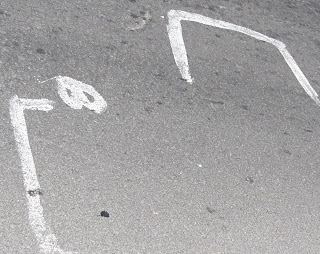
It’s a tragedy when fatal motor vehicle accidents occur. It’s a tragedy when people are injured and sometimes permanently disabled in an accident. It’s even a tragedy when a motor vehicle, often obtained at great cost, is damaged or totally destroyed.
When driving almost anywhere on the island these days, it is rare to not see strange markings on the road; geometrical shapes drawn in chalk that could resemble ancient symbols or at least some form of graffiti message. These markings are police markings; “Signs of Tragedy” identifying the location and point of impact of a recent motor vehicle accident.
When the police are called to an accident scene, they mark the position of the wheels of the vehicle(s) and the point of impact, so the road can be cleared as quickly as possible allowing the flow of traffic to resume.
What happens after an accident makes sense; what happens in the moments leading up to a crash does not. When we as defensive drivers see a car overtaking or approaching at a high rate of speed, especially on a hill or a curve, we react defensively thinking, “There is an accident looking for a place to happen.” The reality is: most accidents are avoidable.
The cost of a motor vehicle accident is huge, to the owners of the motor vehicles, to anyone killed or injured and to society. The good news about our tremendously improved highways is the pleasure we all enjoy not having to navigate crumbling roads and pot holes. The bad news is that portions of these roads have become speedways, with many drivers accelerating far beyond their capacity. Higher priced, more powerful automobiles create higher cost accidents which in turn will drive insurance rates beyond the reach of many drivers.
The Vincentian recently interviewed several police officers, including an inspector. All agreed that a large percentage of their duty time was spent either attending accident scenes or in writing up lengthy reports for subsequent court proceedings and insurance company needs. There was general agreement that they are seeing more accidents and the severity of these accidents is increasing.
It makes sense then, that rather than hand writing traffic reports, police officers could be focusing their efforts on our national crime prevention. Rather than going through the hassle and inconvenience of an accident investigation, increased insurance rates and the embarrassment of spoiling a perfect driving record, we could all better use our time becoming responsible, defensive drivers reducing the police drawn signs of tragedy on our roads.

No comments:
Post a Comment